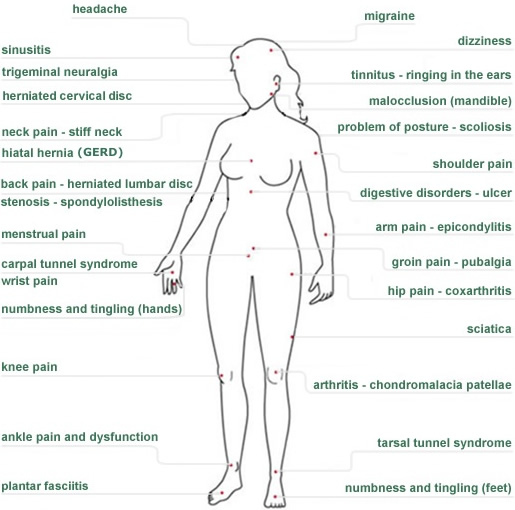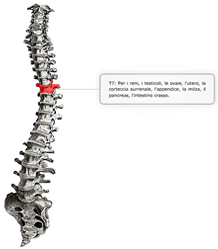Injuries & Surgeries
Injuries & Surgeries
“The single most important factor in the history of a patient is their past trauma and injury.”
Gordon Bronson DPM
On a patient’s first visit, past injuries and surgeries must always be addressed first, regardless of the reason they came in. Failure to do so is like painting over rust.
Muscle Memory
Roughly 80% of patients have a “muscle memory” associated with a past injury or surgery. These “muscle memories” can interfere with normal functioning of the nervous system and perpetuate a variety of health conditions including chronic pain, digestive disturbances, vision changes, balance issues, heart irregularities, postural distortions, repeating injuries, stiffness, menstruation problems, and so on.
When any tissue in the body is injured during a trauma, surgery, and some dental procedures, there is a muscle response. For example, if you turn your ankle while walking, you immediately lift your foot and shift your entire body weight onto the other foot. This type of muscular response is designed to protect us from further injury. While it is meant to last for a short time then return to normal, the muscle response will often continue and remain locked in as “muscle memory.” Fortunately, techniques in Applied Kinesiology have been developed to erase the muscle memory.
Injury Recall Technique
During the 1960s and 1970s, Robert Crotty DPM, and George Bronston DPM made the first observations of treating what they called the “muscle chain response” through the foot and ankle. In the late 1980s, Walter Schmitt DC added muscle testing and Applied Kinesiology assessment procedures that is still in use today. Dr. Schmitt called it Injury Recall Technique (IRT), and he used modern neurological concepts to describe it.[1]
IRT is a very gentle procedure which restores muscle balance to pre-injury status. The results are often dramatic, as long-standing pain vanishes and ranges of motion significantly improve. Other changes have been reported and can be read here. [2]
Am I a Candidate for Injury Recall Technique?
You will often hear people say that after a fall, accident, or surgery, they were never the same. This is because even decades after an injury occurred, there may still be muscle memory. Nearly all fractures, ankle sprains, and hard hits to the head qualify, as does dental work such as extractions and implants. Surgeries such as c-sections and eye laser surgery also leave muscle memory.

 SCHEDULE AN APPOINTMENT
SCHEDULE AN APPOINTMENT









